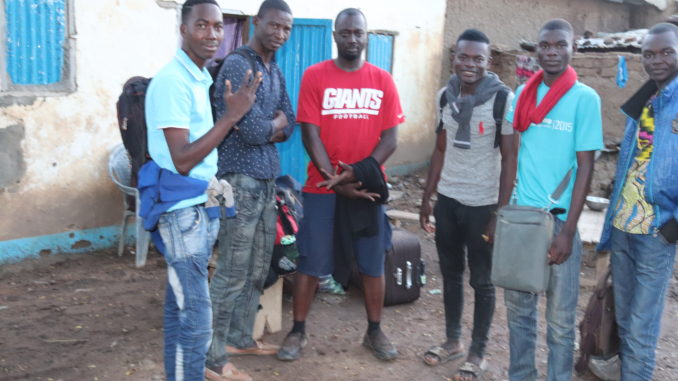
Crossing the Chari River
My arrival at Chad was full of surprises. First of all, my experience with the Chadian Immigration was exactly the opposite of what I experienced at the Cameroonian side of the border. I traveled with a group of five Chadian students from Maroua the previous day to the border town in Kousseri, both cities in Cameroon. These gentlemen treated me with much respect and love that at one point, I thought I was Chadian too. Something remarkable happened at the Cameroonian exit where I was supposed to document my exit out of Cameroon.
I unknowingly wanted to cross the Chari River bridge linking the two countries without completing the exit immigration formalities on the Cameroonian side. One of the Cameroonian officials called me to order, telling me that I was to do the necessary at an office just opposite where I was standing. I had to leave to this office in the company of Jules, one of these five friends that we were travelling together.
The Cameroonian immigration officer I that attended to me in that office was very friendly and spoke English reasonably well. He inquired to know my motives for travelling which I explained to him. What about your friend? He asked referring to Jules. I told him he was Chadian. He queried if I knew him before now but I told him we only met and became friends in the vehicle while coming from Kousseri the previous day.
Seeming to be impressed by my passport (a few places he’s seen I’ve been to) and my ability to make friends easily, he started documenting my passport without requesting for money. Less than a minute into the conversations, another of the five friends joined us in the room. The immigration officer asked him what he wanted and he replied that he’s my friend as well. The officer was visibly excited and before he could say jack, another one entered. When the fourth friend entered the room, this visibly overwhelmed officer could not contain his excitement as he asked me “…Nigerian man, what did you tell these people to be following you like this?” With a big smile and eyes full of pride I told him am good at making friends. He nodded with agreement and bade us farewell. We left to cross the famous Chari River bridge to the Chadian side of the border.
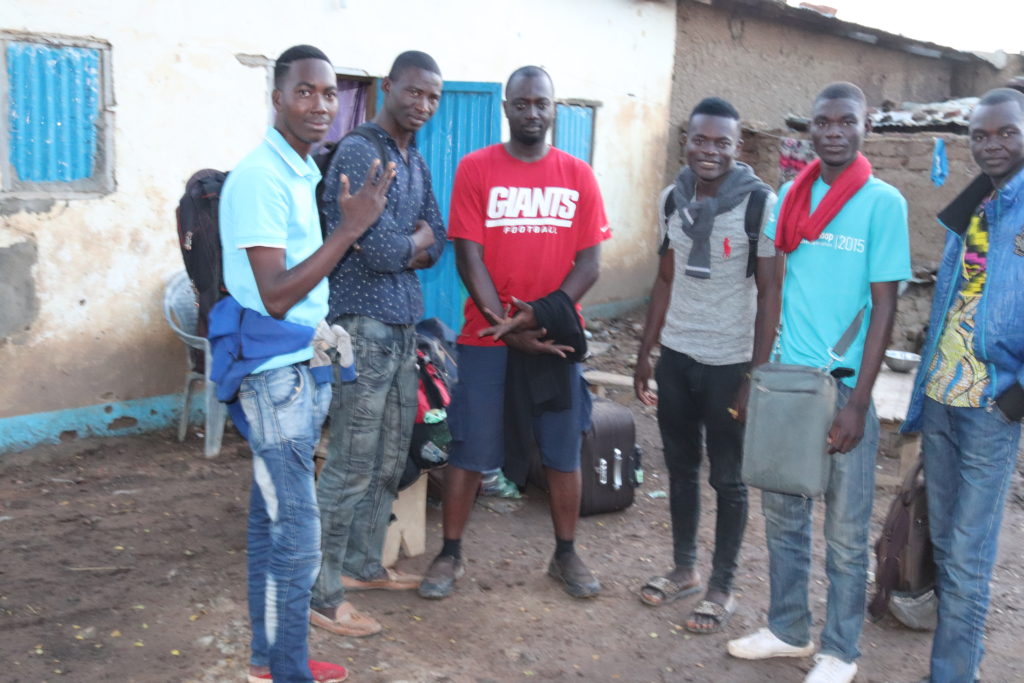
On arrival at the Chadian side, some tout looking persons (about 3 of them) with one other person who claimed he was a police officer requested us to show our ID’s, thinking we were all Chadians. On sighting a passport, they took me aside. At this point, they could not allow any of my friends go with me. They requested for 5000 CFA (around $10) before they could allow me, noting that some polythene bags they saw in my luggage is prohibited in their country. The long and short of the story was that they sent me to the head of police when I proved stubborn that I was not going to pay as I insisted I was on transit to Nairobi.
The police chief succeeded to get me to pay a sum of 5000 CFA for the immigration stamp into their country even though I tried to convince him I was a journalist. Well, that was not the end of it. I had four other offices I was told would require another 2000 CFA each before I was allowed into the country finally. I was very determined not to give any of them a dime since I was already in. I spent almost 2 hours with them but eventually left after spending only 500 CFA on one of the officers who I had a very dramatic encounter with. I had earlier seen this man when I was being delayed in the first of the four offices – his office happened to be the third I was to visit.
On arrival to his office, he was reading out loud some chants in Arabic from a very small book that I was not sure if it was the Holy Koran. I wanted to traverse his office with the guise he was performing a religious activity but he waved with a daring look which was as good as saying where are you going to without seeing me. He stretched out his hands, collected my passport and opened, peeped to see my nationality, closed and dropped it and then continued this chant for another 3 minutes or so.
Thinking I was in a safe ‘religious’ hands, I did not know that was going to be my worst encounter. He boasted he was an Interpol agent and his duty there was to ensure the security of his country and other countries. I attempted to massage his ego by telling him he is doing a great work by protecting the country from Boko Haram of which he pretended he did not hear. He continued that if I do not pay the sum of 2000 CFA, he could cease my passport and I would have to come pick it up the next day at the Central Police Station. He even turned down an attempt by the first officer I met earlier who after a 30-minute delay or so, asked me to go when he saw I was not ready to pay. The Interpol guy eventually took 500 CFA and allowed me to go.
By this time, my friends are already gone and I was also done with the immigration formalities. The next thing in line was to go buy a sim card and then proceed to N’Djamena. On arriving an Airtel Shop at the border, I had to pay for a sim and then when it was then time to subscribe for internet, I was mortified by the price I was asked to pay. I casually asked for the cost of 1 GB of data and I told this would cost me 12 000 CFA ($15). I could not believe this pricing until I saw it pasted on the wall. Incredible I thought. How could this be? In this day and age? In any case, I subscribed just 250 MB and after this subscription, guess what, my connection to several social media could not work. It was eventually I learnt that social media is banned and that even if I must use it, it has to be done using a VPN software.
All these experiences gave me a very negative impression of the country. Spending some time there made me appreciate the people who were nice but now made me see the government as the real problem of the people.
I wondered with how the youth and the next generation of children born in that country will succeed with this type policy that makes internet expensive and restricts younger ones from social media. On further research, I found out that access for social media was first noticed on the 28th of March 2018 meanwhile I was there on the 18th of July this same year.

The shutting down of internet and social media most especially is a ploy most African government has employed to subdue and manipulate their people. Countries like Uganda, Ethiopia, Gabon, DR Congo, The Gambia, Niger just to mention a few have used this scheme to suppress their people. Apart from denying the citizens the freedom of speech, the economic loses made from this seemingly selfishly gratifying actions runs into millions of dollars. Online statistics shows that millions of dollars are lost daily whenever internet is shut down in this manner. In Chad for instance, all the total cost of internet blackouts so have is soaring around $22.1 million. I really wish something is done quickly to reverse this trend. I am also hoping the government will do something to reduce the internet tariffs in that country.
Finally, the government of Chad has all it takes to make internet available to her people. They could start by allowing more telecom companies into the country. At the moment, the two telecom companies that operate in the country are Tigo and Airtel. Opening doors for so many other telecom companies will allow them compete to provide excellent services to their teeming customers and at the same time help to grow the country’s dwindling economy. The government also will have to do a lot to reduce the tax imposed on these telecom companies as these tax burdens are major contributors to the high tariffs on internet services in that country.
Anyways, arriving N’Djamena later that day, I spent almost the whole day to find a place to sleep and I found a hotel called 5 Sur 5 Hotel in Quatier Chogua where I rested for the night till the next day. I went to tour the city and also depart for Nairobi.

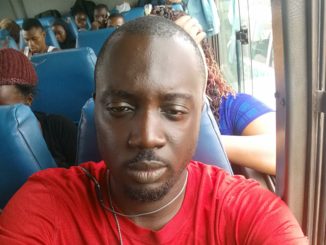
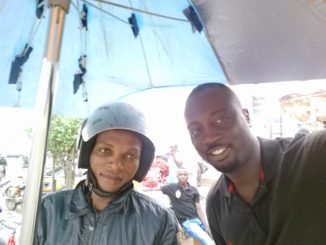
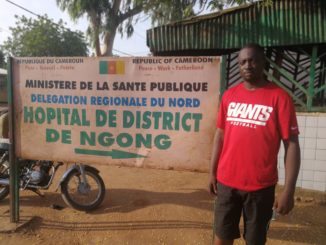
Be the first to comment